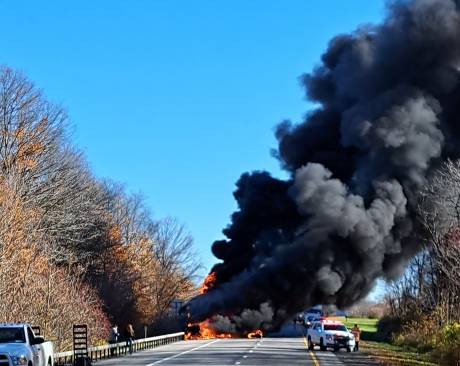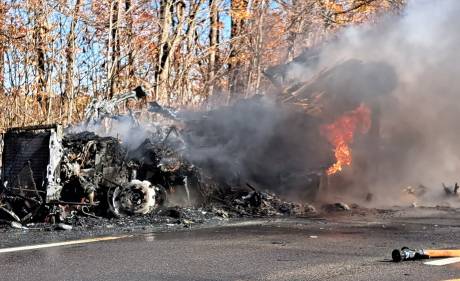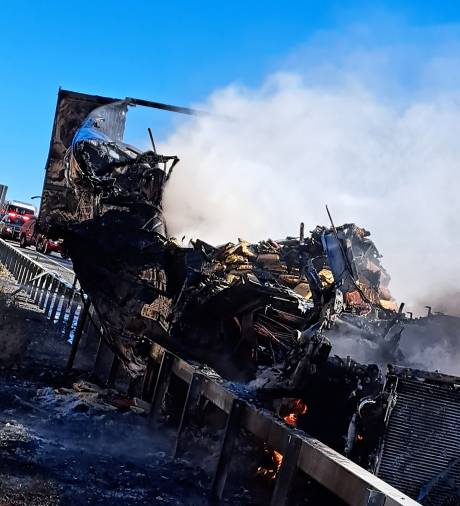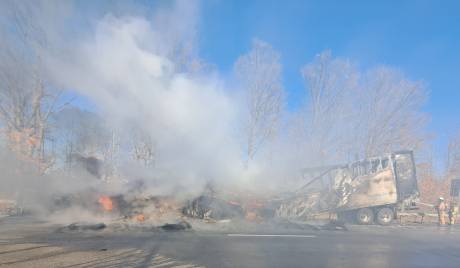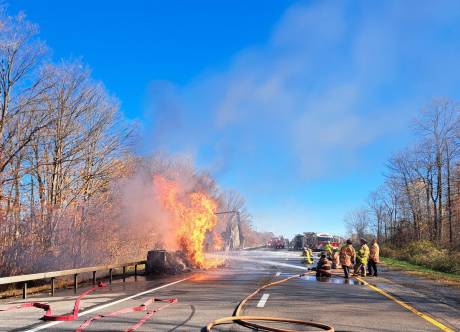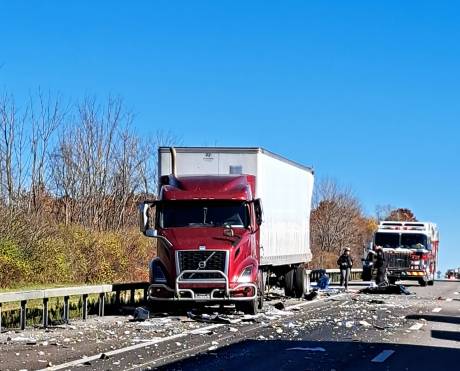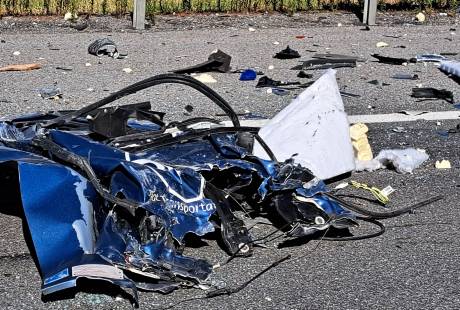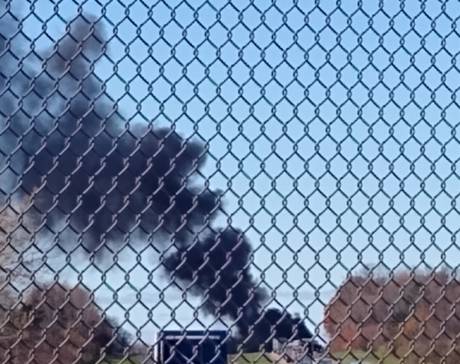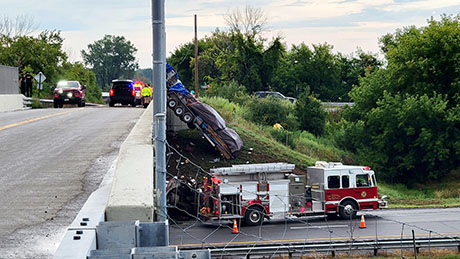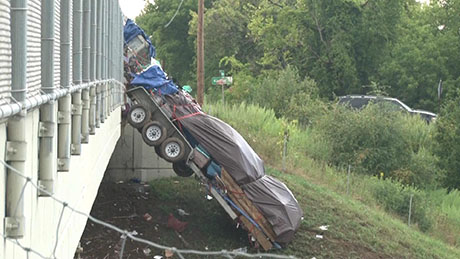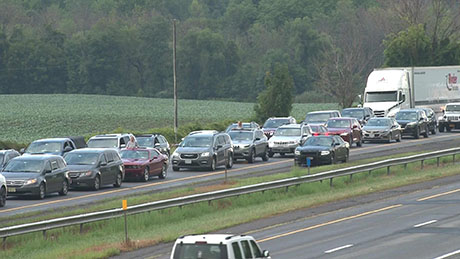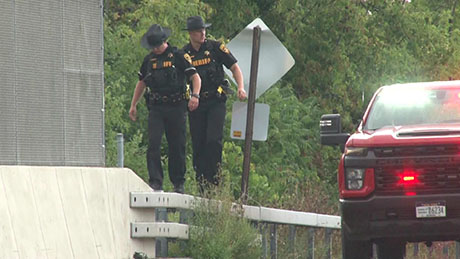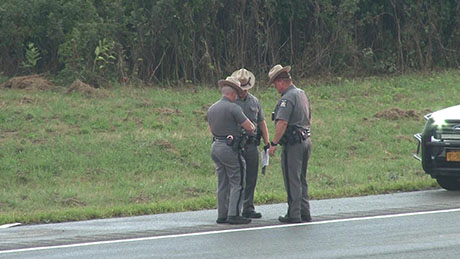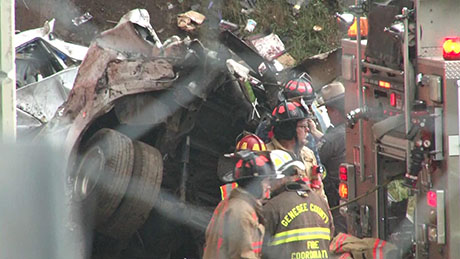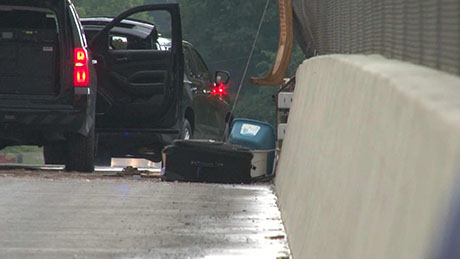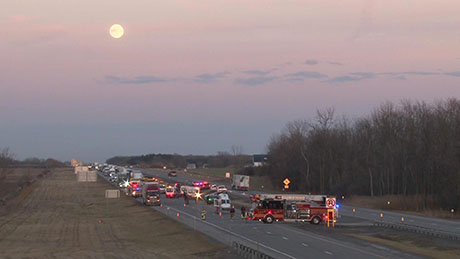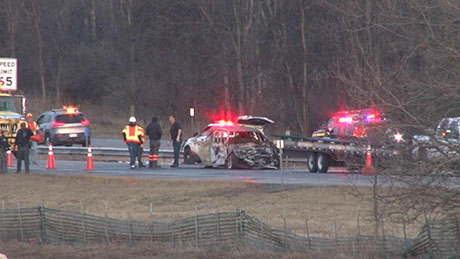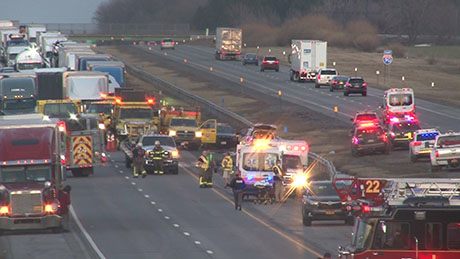The NYS Thruway Authority has taken exception to reporting by The Batavian that the agency had no plan on Dec. 23 when it closed the portion of the I-90 going through Genesee County to route motorists away from the affected storm area.
In a Dec. 29 story about the response of the Oakfield and Alabama fire departments to rescue travelers, The Batavian reported:
The dangers of the storm were exacerbated by a Thruway Authority that shut down the I-90 with no plan to send travelers on safe routes and with Google and Apple map technology ill-equipped to warn drivers of dangerous weather conditions and send them on routes that would take them around the hazardous roads.
In another story published that same day, we reported:
As hundreds of travelers learned on Friday, their trip on the Thruway would get abruptly cut off when a travel ban was issued and a large portion of the Thruway closed.
Jessica Mazurowski, public information officer for the Thruway cited both of these stories in an email to The Batavian on Thursday, saying she "wanted to make a few points to you about the storm."
Mazurowski wrote:
It’s unclear who is making this statement -- the paper or the County Manager. However, on Friday, when these people were traveling, and the Thruway closed, no one should’ve been traveling. Travel bans were already in effect in Erie and Genesee Counties, as well as surrounding areas. We close or issue travel bans in direct coordination with state and local entities to ensure everyone is on the same page.
All major media outlets across New York were reporting on this storm days in advance. Erie County and Genesee County both issued travel advisories on Thursday, Dec. 22 and upgraded them to travel bans on Friday, Dec. 23. The Thruway Authority announced the commercial vehicle ban on Thursday, Dec. 22 and began messaging on digital highway signs into Pennsylvania, to the Massachusetts state line and down to New York City. Messaging was also on social media, our website, and our mobile app, not just on the commercial vehicle ban but about the severity of the storm and urging motorists not to drive. When the full vehicle ban was announced on I-90 from exit 46 to the PA state line, the messaging was on digital highway signs statewide and into PA, on social media and our website, and mobile app.
The Batavian's reporting is based on statements from multiple sources, not just County Manager Matt Landers, that the vast majority of people being rescued or seeking shelter in the homes of residents or warming shelters were from out of state and were forced off the Thruway in Genesee County with no idea of the local travel ban, the looming storm, its location, or the hazardous conditions a storm of this magnitude might manifest.
Our sources include other government officials, volunteer firefighters, tow-truck operators, residents who provided shelter, and some of the motorists themselves.
After receiving her email, The Batavian sent multiple questions to Mazurowski and received no response.
We wanted to know, If the Thruway Authority had prior knowledge of the dangers of the storm, why did it take so long to institute a travel ban? Were travelers provided enough time to exit the Thruway before reaching the hazard zone?
Why was there no signage or traffic control at the Thruway exits to ensure travelers did not head north of the Thruway once they were in Genesee County? Or was there signage we don't know about, and travelers just ignored it?
Our story stated the TA had no plan to deal with the unsafe conditions for travelers before dumping motorists off the I-90 onto rural roads. We wrote to her, "Nothing in your response indicates the TA did, in fact, did have a plan in place to ensure the safety of travelers once they exited the Thruway."
We noted to Mazurowski that it is unrealistic to expect all travelers to be aware of weather conditions, travel bans, or have familiarity with blizzards and lake effect snow (several sources told The Batavian, in fact, that many travelers had never encountered conditions such as they saw in Oakfield and Alabama on Friday and Saturday).
Motorists and passengers may not have tuned into terrestrial radio or have downloaded the appropriate apps to receive alerts.
We asked, "Is it reasonable for the TA to assume that ALL travelers were aware of the hazards ahead? Shouldn't it be foreseeable by the TA that some percentage of travelers will be unaware and unprepared, or engage in a blind unwillingness to listen to good advice? Shouldn't the TA take precautions to help protect people from their own lack of knowledge and experience?"
We concluded, "So the question remains, what was the TA's plan to route travelers off the i-90 to safe locations?"
We followed up with Mazurowski on Friday and received a response that she was out of the office and to direct any questions to the general email address for the public information office. We did. And still did not receive answers to these questions.

